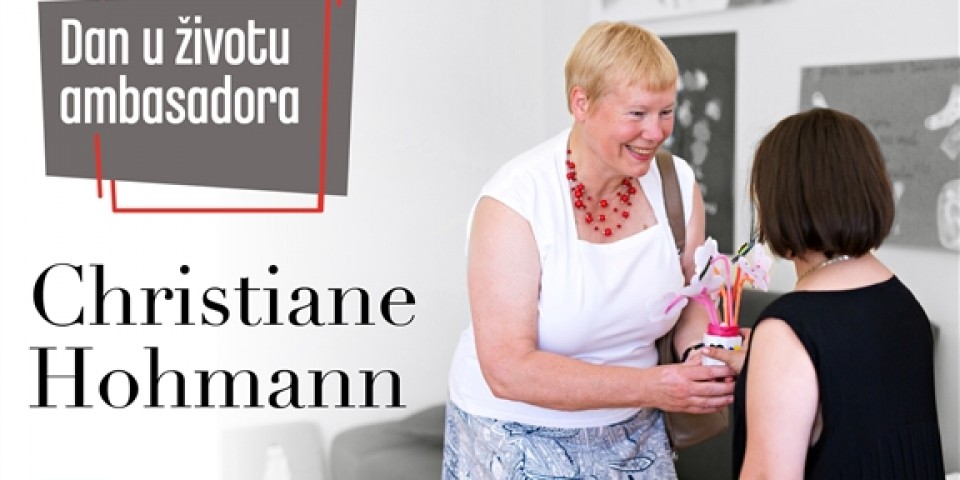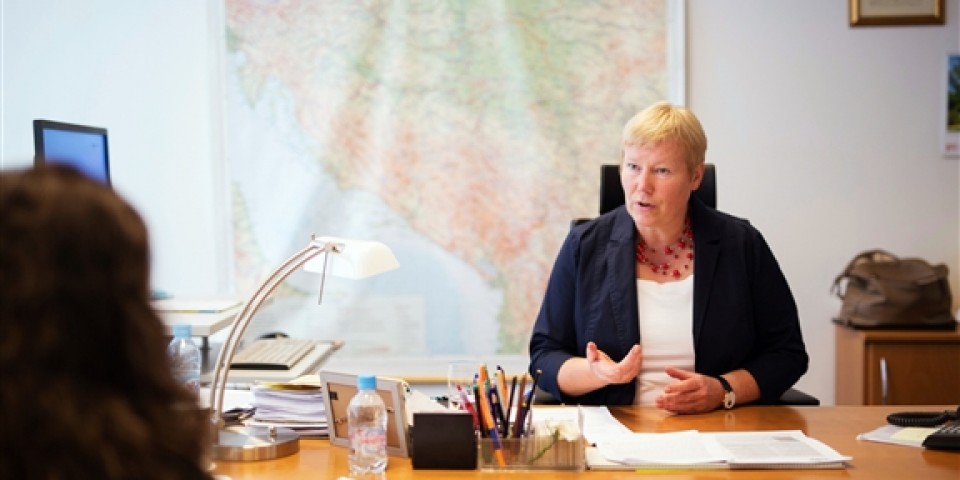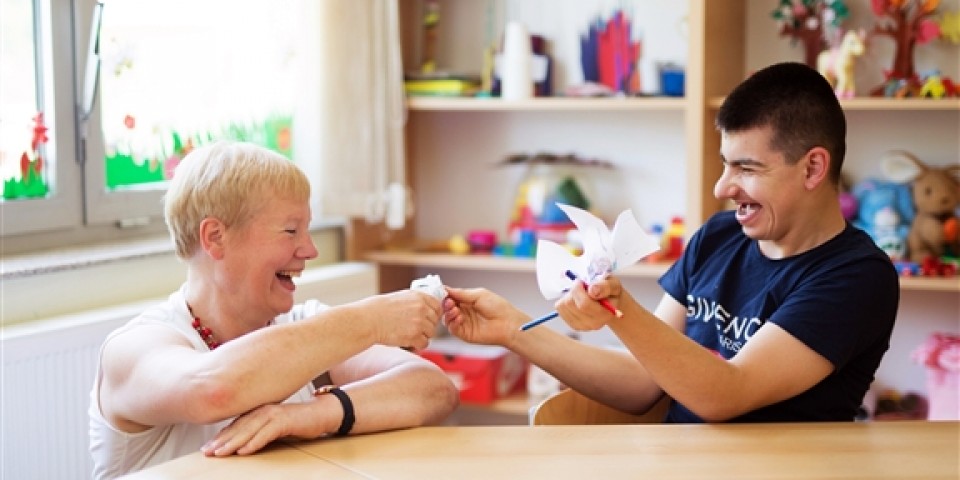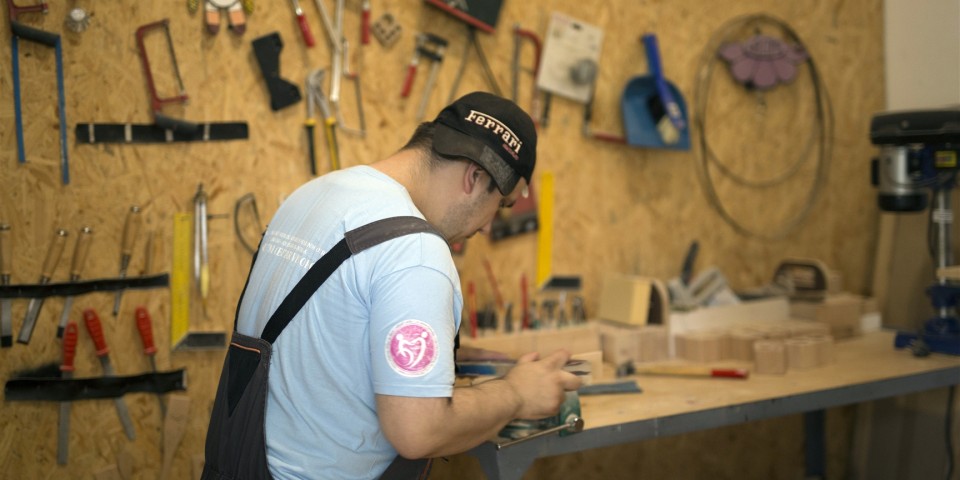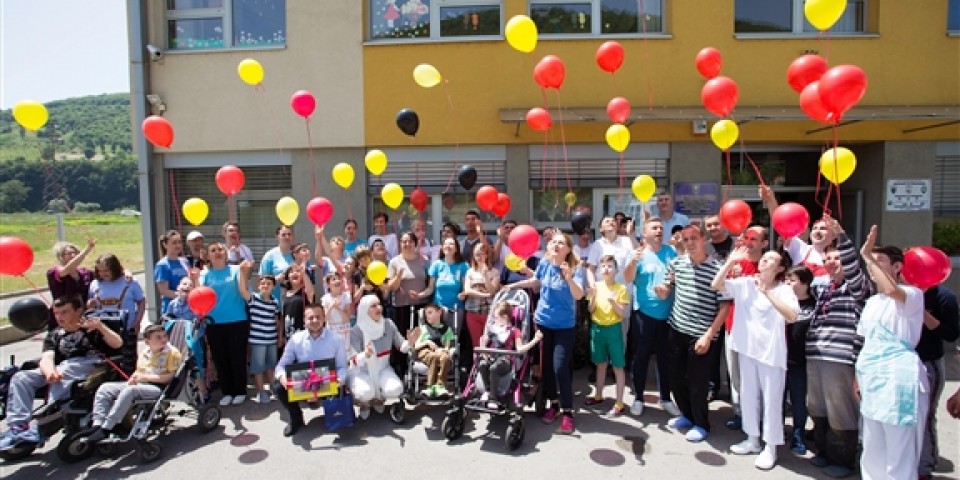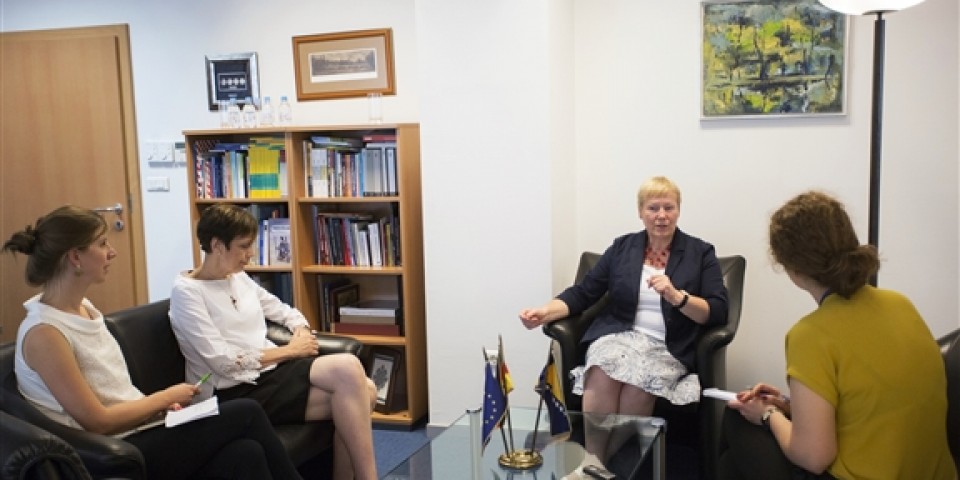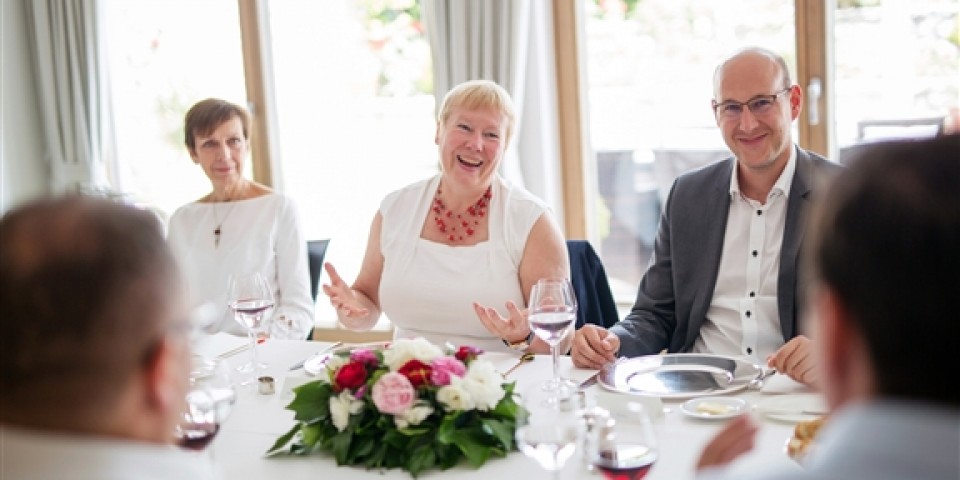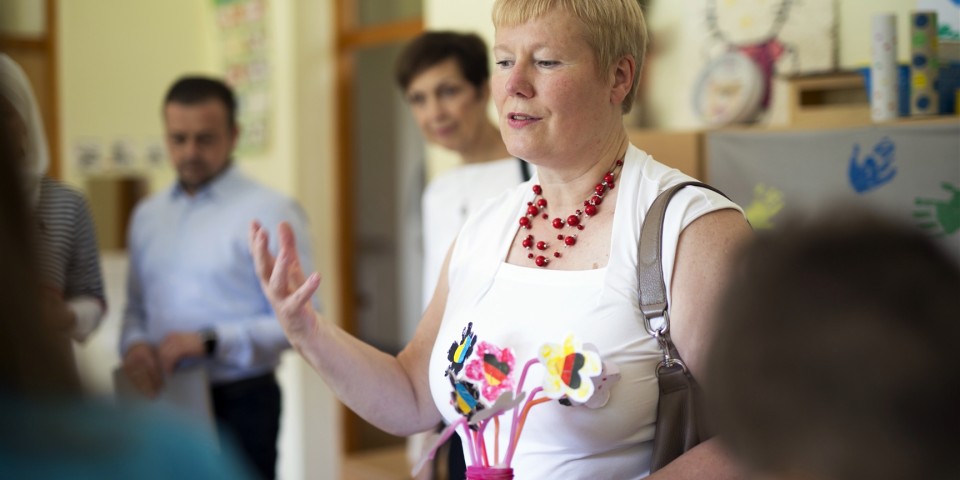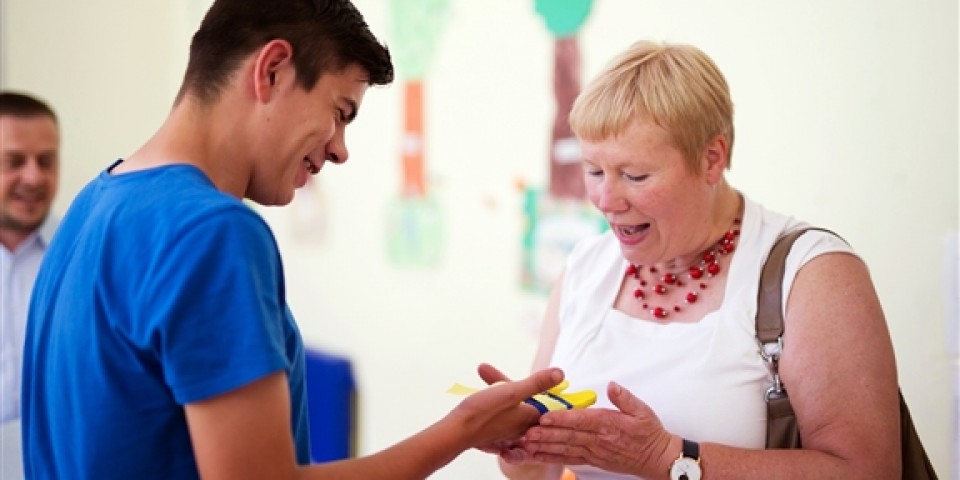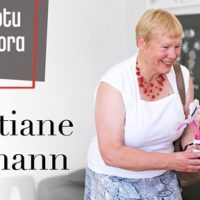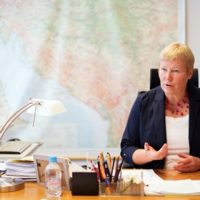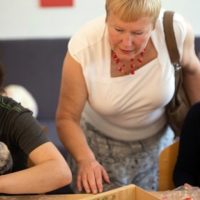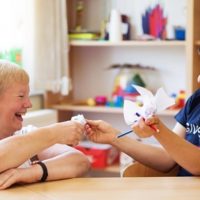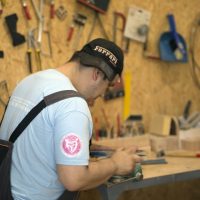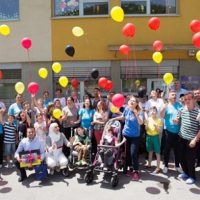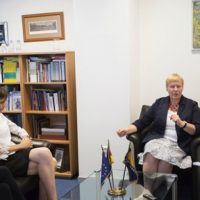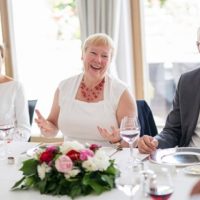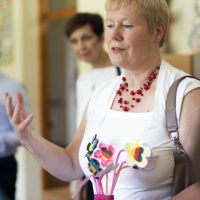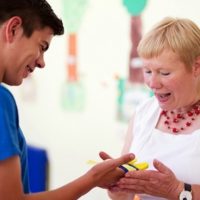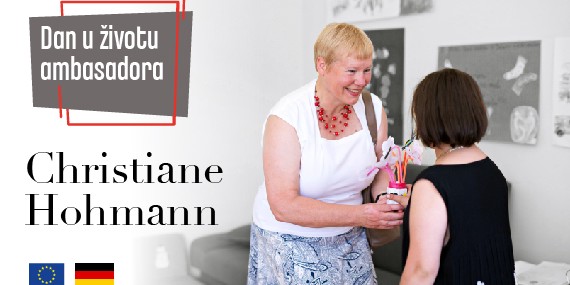
A Day in the Life of an Ambassador: Christiane Hohmann
FOR CHRISTIANE HOHMANN, AMBASSADOR OF GERMANY TO BOSNIA AND HERZEGOVINA, THE BIGGEST ACHIEVEMENT OF HER JOB IS MAKING A CHANGE TO THE EVERYDAY LIVES OF CITIZENS OF THE COUNTRY. SHE WILL REMEMBER HER P...
FOR CHRISTIANE HOHMANN, AMBASSADOR OF GERMANY TO BOSNIA AND HERZEGOVINA, THE BIGGEST ACHIEVEMENT OF HER JOB IS MAKING A CHANGE TO THE EVERYDAY LIVES OF CITIZENS OF THE COUNTRY. SHE WILL REMEMBER HER POSTING AS CHALLENGING BUT ALSO GRATIFYING, THANKS TO THE PEOPLE SHE MET HERE. WHAT DOES A DAY IN HER LIFE LOOK LIKE AND HOW DOES SHE SEE HER JOB AND OBLIGATIONS AS AN EU MEMBER STATE AMBASSADOR IN BOSNIA AND HERZEGOVINA?
Every day has its routine parts, like staff meetings and time to follow up on the news, but apart from that, no day is like the one before. As an ambassador, you have to look into a host of different topics every day – from visa questions and economic issues to cultural events or highly political matters. For many issues, I seek out expertise from colleagues or hold meetings with partners from BiH. A lot of my work is communication – be it with my embassy colleagues or with external partners. As an ambassador, if you lock the doors and sit alone at your desk, you will be lost most of the time – and the title does not mean anything unless you have people who support you!
Today was actually quite a typical day – discussions with Berlin and my embassy colleagues, a trip to Visoko, a lunch with the German business community in BiH and now this interview with you. It definitely never gets boring.
Support to organisations and associations for people with disabilities across Bosnia and Herzegovina is one of the activities the German Embassy holds dear, as they create greater visibility for the issues vulnerable groups are facing.
Today, I visited the day care centre for disabled young people in Visoko, one of four such centres that Germany has helped build. We also supported the training of all caretakers and teachers there, and the centres are now fully equipped to European standards. I visit the centre in Visoko annually, and it is amazing to come back each time to meet people again and see the progress they have made. It is a great feeling to help people achieve their goals and that is what I am most proud of.
Two years ago, we decided to concentrate a lot of our activities on the promotion of disabled sports. We supported numerous, very impressive sports organisations in BiH, such as a table tennis team for the mentally disabled in Banja Luka. A sports team from Tuzla asked us to provide them with a dart board – for the visually impaired! We were so surprised and impressed by their performance that we invited them to participate in our Christmas bazar and organise a competition there. We also supported a marathon club that provides guides for the visually impaired. I recently ran into one of the guides again and he showed me a photo of them winning first place in Ljubljana! Moments like that are very gratifying. We try to ensure the best for the people of this country, and the best prize you can get for your work is seeing a tangible result.
It is important to us to enable disabled people to be more self-sufficient and self-confident through care, education and life skills support, as well as support to local authorities to have enough suitable facilities. The young people in the centre in Visoko also create great, competitive products. I showed some of the gadgets they produce – like pen holders – to members of the German business community over lunch today. And some of them actually decided on the spot to order their giveaways from the centre in Visoko from now on! To me, this is a great example of what we can do here as foreign representatives: highlight exemplary initiatives and create greater visibility for the issues that vulnerable groups have to deal with.
Reconciliation, respect of human rights, promotion of common values and understanding of the richness of tradition is something that needs to be cherished.
There are people here in BiH who work hard for their society, and it is our task to make sure they do not give up. It is always difficult pioneering something, but we have to keep going. There is a long list of challenges that we need to tackle, and as an ambassador, I can reinforce positive examples or point at the issues and say: this should not be happening. Like with the announcement of the first pride parade in BiH. I was truly shocked about some public statements that were made. For a country that is supposed to be striving to be a part of the European Union, this is unacceptable and such signs of intolerance are beyond belief.
Generally, I wish people would react more to what politicians say and push them to do more, because they were elected by the citizens and have a responsibility to them – they should be held accountable much more than they are at the moment. There are EU programmes, national and bilateral initiatives which try to improve the situation in the country, but unless there is a shift in attitudes, our technical programmes will always just scratch the surface.
Germany has had strong ties with Bosnia and Herzegovina for decades, especially strong economic relations. The German Embassy is continually supporting the growth of the local economy to prepare it for the EU’s internal market.
There are numerous German companies working successfully in BiH and we can combine forces and offer so much more. I was shocked when I came here in 2016 with everyone saying that the EU and Germany have forgotten us. I didn’t understand that, when we have bilateral development assistance, and we have investments here, that people could possibly think that. So we started a campaign with large scale events to show what Germany does in BiH. The first event was in Sarajevo, then we went to Brčko, Tesanj and Banja Luka most recently. We brought together companies with local names that are actually German companies, institutions like the Goethe Institute, political foundations, and non-governmental organisations like Schuler Helfen Leben or Transparency International. All of that is Germany in Bosnia and Herzegovina, we are much more present than you might imagine. It is also important to us to show what Germany contributes to making BiH more attractive for its own citizens again, so they can see perspectives here.
One thing we are doing to tackle the problem of brain drain here is support to better systems of vocational training, for example through increased cooperation between schools and companies. With our investors who know this dual training system from Germany, we try to provide students with the skills they will need in the labour market. Of course, such changes take time and require changes to educational laws, negotiations with authorities and agreements with companies. But we are seeing positive results: in January, at the first ever “Vocational Education and Training Awards” with the Delegation of the German Economy in BiH, we were able to award four outstanding schools that voluntarily cooperate with companies to include practical training in the school programme!
Europe is a multitude of cultures, traditions and histories, and Bosnia and Herzegovina is a unique amalgam of different influences coming together. It is our common values that unite us.
When it comes to the European integration process, the core is the technical negotiations, but that is only part of it. We have to strengthen this country to carry out the necessary reforms, but the process goes even beyond that – it requires a complete societal change and that is the big challenge. Because unless there are shifts in attitudes, we will not be able to move forward.
I don’t have a recipe or a ready-made solution on precisely how to get us there, but I think that we need to talk to the people of this country more. Perceptions about the EU are sometimes polarised and we need to explain the process better.
Exciting, challenging and full of human warmth is how the Ambassador describes her experience in Bosnia and Herzegovina.
The most gratifying part of my job is when I get to go outside, work on the ground and meet people, particularly in smaller communities across the country. People create a very welcoming atmosphere here and make an effort despite all the difficulties. I am happy to have had the opportunity to discover this country and see all of its potential.
For everyone interested in becoming a diplomat, I would advise them to never lose their curiosity and to keep an open mind. In my career, I’ve been able to do different things in each posting and cover completely different areas and topics, which keeps you always awake and learning. That is a privilege. The job requires a lot of flexibility and can be challenging for your family, and knowing this has to be part of any decision for this career. But the personal benefits of this job are also enormous: every experience that I have had in every posting so far has made my life so much richer.
Sarajevo, June 2019

